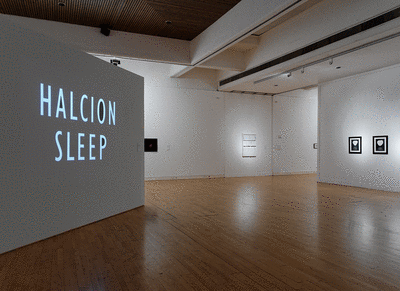KIVLAND, Sharon (2009). Afterwards. [Show/Exhibition] [Show/Exhibition]
2184-fitandcrop-870x490.jpg
Available under License All rights reserved.
Download (234kB) | Preview
Mead_jun09_325.jpg
Available under License All rights reserved.
Download (771kB) | Preview
Mead_jun09_227.jpg
Available under License All rights reserved.
Download (736kB) | Preview
Mead_jun09_207.jpg
Available under License All rights reserved.
Download (467kB) | Preview
Mead_jun09_125.jpg
Available under License All rights reserved.
Download (630kB) | Preview
Mead_jun09_316.jpg
Available under License All rights reserved.
Download (541kB) | Preview
An exhibition curated by Sharon Kivland for the Mead Gallery, Warwick Arts Centre, University of Warwick.
Etienne Bossut, Pavel Buchler, Juan Cruz, Gareth Fisher, Rodney Graham, Lucy Harrison, Sharon Kivland, Jaspar Joseph-Lester, Selma Makela, Charlie Youle and Bevis Martin, Simon Morris, Sergei Pankejeff, Alexandre Ponomarev, Jean-Jacques Rullier, John Stezaker, Benjamin Swaim, Julie Westerman
The exhibition also features drawings by Francis Fowler and Francis-Baptiste Haselden and items from the collections of the Freud Museum, London and the University of Warwick.
Curated by the artist Sharon Kivland, this exhibition explores the concept of ‘Nachtraglichkeit’, the term employed by Sigmund Freud to describe the phenomena of ‘deferred action, where impressions, experiences or memory traces gain significance as a result of re-experiencing the event. The term ‘afterwardsness’ was developed by the French psychoanalyst Jean Laplanche, who honed Freud’s concept to address the time structure of trauma – the afterwardsness of unconscious childhood memories.
Kivland’s exhibition articulates Nachtraglichkeit, in the arrangement – or retranscription – of a number of works of art and objects. Pivotal to the exhibition is the painting ‘The Wolfman’ by Sergei Pankejeff, one of Freud’s patients, which belongs to the Freud Museum in London. It depicts Pankejeff’s childhood ‘wolf dream’ of lying in bed and seeing the window open of its own accord to show some white wolves sitting on the walnut tree opposite the window. Freud used this dream to assert the validity of psycho-analysis to examine childhood traumas embedded in the unconscious. The exhibition takes its form around this painting, shifting between what may seem to be landscapes (or their reconstructions), memories (or their rearticulations and representations), and the play between the future, the past and the present in the unconscious.
Downloads
Downloads per month over past year
Actions (login required)
 |
View Item |


 Tools
Tools Tools
Tools![[thumbnail of 2184-fitandcrop-870x490.jpg]](https://shura.shu.ac.uk/6229/1.hassmallThumbnailVersion/2184-fitandcrop-870x490.jpg)
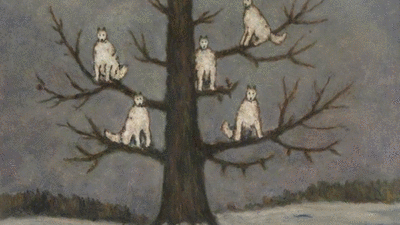
![[thumbnail of Mead_jun09_325.jpg]](https://shura.shu.ac.uk/6229/2.hassmallThumbnailVersion/Mead_jun09_325.jpg)
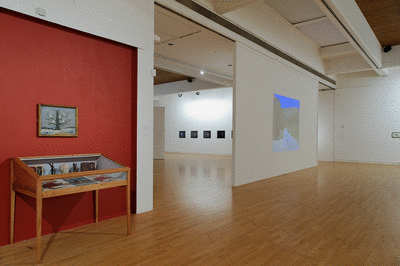
![[thumbnail of Mead_jun09_227.jpg]](https://shura.shu.ac.uk/6229/3.hassmallThumbnailVersion/Mead_jun09_227.jpg)
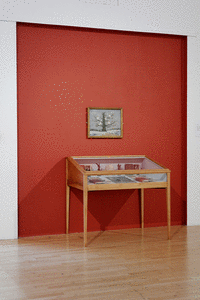
![[thumbnail of Mead_jun09_207.jpg]](https://shura.shu.ac.uk/6229/4.hassmallThumbnailVersion/Mead_jun09_207.jpg)
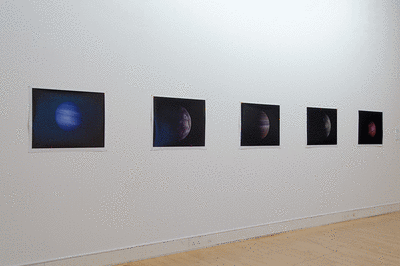
![[thumbnail of Mead_jun09_125.jpg]](https://shura.shu.ac.uk/6229/5.hassmallThumbnailVersion/Mead_jun09_125.jpg)
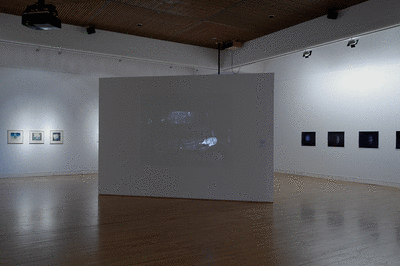
![[thumbnail of Mead_jun09_316.jpg]](https://shura.shu.ac.uk/6229/6.hassmallThumbnailVersion/Mead_jun09_316.jpg)
